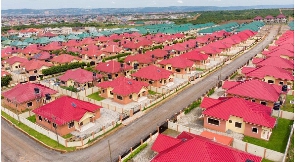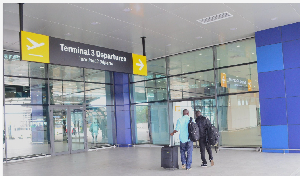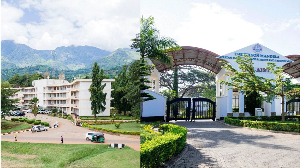If you are applying for a mortgage to own a house in Ghana, you must read this piece. Owning a home through a mortgage in Ghana is now easier than before. You need to understand and meet a few requirements to purchase your dream house.
In this comprehensive guide, we will walk you through only the necessary steps to securing a mortgage in Ghana. The most interesting thing is that you can use your mortgage to secure your dream home at Lakeside Estate.
Before we go through the steps, it is prudent to understand the mortgage landscape in Ghana.
1. Mortgage Types in Ghana
In Ghana, mortgages come in various forms, including fixed-rate mortgages, adjustable-rate mortgages, and interest-only mortgages. Each type has its advantages and disadvantages, making it essential to choose the one that best suits your financial situation and goals.
2. Eligibility Criteria
Certain eligibility criteria must be met to qualify for a mortgage in Ghana. This typically includes proof of income, creditworthiness, and the minimum age requirement. Ensure you meet these criteria before proceeding with your application.
Now let’s find out the steps involved in applying for a mortgage in Ghana.
Step 1: Determine Your Budget.
Before applying for a mortgage, it’s essential to assess your financial situation and determine how much you can afford. Consider your income, expenses, and any existing debts to calculate your budget for a mortgage.
Step 2: Research Mortgage Lenders
Research different financial institutions and banks in Ghana that offer mortgage loans. Some of the mortgage providers in Ghana that partner with Lakeside Estate include Stanbic Bank, FNB, Ecobank, Republic Bank and Absa. Compare their interest rates, terms, and conditions to find the one that best suits your needs.
Step 3: Gather Necessary Documents
Lenders will require various documents to evaluate your eligibility for a mortgage. These typically include:
Proof of income (e.g., pay stubs or employment letter)
Identification (e.g., passport, national ID, or driver’s license)
Bank statements
Proof of address
Property documents (if you already have a property in mind)
Step 4: Prequalification
Many lenders offer pre-qualification services. This involves a preliminary assessment of your financial situation to estimate the loan amount you may be eligible for. Prequalification is not a guarantee of a loan but can be helpful in determining your budget.
Step 5: Choose a Mortgage Type
Select the type of mortgage that suits your needs. Common mortgage types in Ghana include fixed, adjustable, and hybrid mortgages. Each has its own interest rate structure and terms.
Step 6: Complete the Mortgage Application
Fill out the mortgage application provided by your chosen lender. Be thorough and accurate when providing information. Attach the required documents to support your application.
Step 7: Mortgage Approval and Underwriting
Once your application is submitted, the lender will review your financial information and assess your creditworthiness. This process is called underwriting. It may take some time, and the lender may request additional information during this stage.
Step 8: Property Appraisal
A professional appraiser will evaluate the property you intend to purchase to determine its value. The lender uses this appraisal to ensure the property’s value aligns with the loan amount.
Step 9: Receive the Loan Offer
If your application is approved and all conditions are met, the lender will provide a formal mortgage offer, specifying the loan amount, interest rate, and repayment terms.
Step 10: Accept the Mortgage Offer
Review the mortgage offer carefully, and if you are satisfied with the terms, sign the necessary documents to accept the offer.
Step 11: Legal Documentation
The lender and the borrower will sign a mortgage agreement, and you may need to engage a lawyer to ensure all legal requirements are met.
Step 12: Mortgage Disbursement
Once all documents are in order, the lender disburses the loan amount to the seller or developer of the property, and the property title is transferred to your name.
Step 13: Begin Repayments
After the mortgage is disbursed, start making regular repayments as per the terms of the mortgage agreement. Make sure to meet your obligations on time to avoid any penalties or issues.
It’s essential to consult with a financial advisor or mortgage specialist in Ghana to get personalized guidance when applying for a mortgage, as specific requirements and procedures may vary between lenders.
If you need further information on the procedure, we are always happy to help. Visit us at our office on the 7th floor of the Silver Star Tower in Airport City, Accra. You can also reach us at +233 204775043.
Advertorial of Saturday, 25 November 2023
Source: lakesideestate.com













